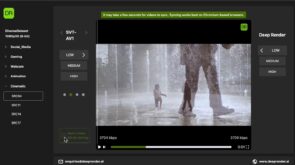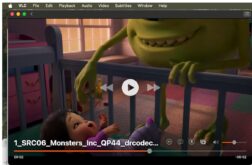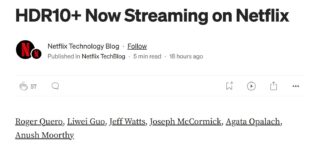Luxembourg-based Sisvel International SA announced patent pools for VP9 and AV1 yesterday targeted at consumer display devices (smartphones, TVs, etc) and consumer non-display devices (set-top boxes and OTT devices). Here’s what we know from this article on Streaming Media) and this Q&A.
- The standard rate for VP9 is € 0.24 for display devices and € 0.08 for non-display devices, while AV1 is € 0.32 and € 0.11 respectively.
- There will be no royalty on content but there may be royalties in the future for software like browsers.
- There is no annual cap.
- Sisvel represents technology from JVCKENWOOD, NTT, Orange, Philips, and Toshiba IPR Solutions.
Streaming Media reached out to officials from Google and the Alliance for Open Media with no response yet.
Analysis
What does this mean? I spoke with Intellectual Property attorney David Long for the Streaming Media article. His basic thought was that there was always a strong possibility that a pool like this would arise so it’s no surprise. From the article, “He recommended that companies shipping products that may be covered by the pools start performing due diligence to determine if their products infringe upon these patents.”
From my perspective, it’s great that Sisvel took content-royalties off the table making the royalty a “big company” thing and freeing streaming producers from royalty concerns. Of course, royalties on hardware products are always paid for by the consumer, but do we really mind if the retail price of our new 4K flatscreen is $601 instead of $600?
What’s fascinating is what’s to come. Google (VP9) and the Alliance for Open Media (AV1) could sue to invalidate the Sisvel patents, an action that United Patents has taken against many of the HEVC patents in the Velos Media pool.
Or, the Alliance members could wait to be sued. Google was sued by Nokia in Germany for infringement with the VP8 codec but won the lawsuit. The Alliance has a legal defense fund and certainly, with members like Apple, Google, Intel, Microsoft, Netflix, Amazon, Facebook, IBM, CISCO and many others there won’t be a shortage of funds.
Or, the Alliance could simply ignore the Sisvel pool, which is what most large DASH users like Microsoft, Google, and others seem to have done with the DASH pool formed by MPEG LA. Not all patent pools achieve critical mass. For example, Via Licensing announced a patent group for AVC/H.264 which ultimately failed with most IP owners joining the MPEG LA pool. I spoke with a colleague familiar with Sisvel who shared that they were an experienced player founded in 1982 and known for aggressively protecting their IP interests. Then again, Via was/is similarly experienced, and even though the Via pool failed, the royalty obligations it represented didn’t go away.
What will other video-related IP owners do? A FAQ posted on the Velos Media HEVC pool website states, “As it relates to royalties, we know that VP9 incorporates patented technologies, including some of the patents being licensed by Velos Media for HEVC…[i]t is likely that the…AV1 specification may also incorporate patented technology from many parties.” Will Velos, MPEG LA, and HEVC Advance form their own AV1/VP9 pools, making AV1 the new HEVC from a licensing perspective. Or will these IP holders join Sisvel?
The Sisvel announcement has the overwhelming feel of Buster Douglas knocking out Mike Tyson, or more recently Holly Holm knocking out Ronda Rousey. Tyson and Rousey were invincible champs until they weren’t. Is the same now true for the royalty-free status of AV1? Or will the Alliance attempt to put Humpty-Dumpty back together again with prompt and aggressive action to invalidate the patents in the Sisvel pool, or prove that they don’t apply to VP9/AV1?
Interestingly, while big companies don’t seem to act until sued, membership group United Patents has aggressively acted to invalidate patents proffered by pools like Sisvel. It could be that the next move we see comes from United Patents.
 Streaming Learning Center Where Streaming Professionals Learn to Excel
Streaming Learning Center Where Streaming Professionals Learn to Excel










One comment
Pingback: Transparency Alert: I Will Be Working With Sisvel – Streaming Learning Center